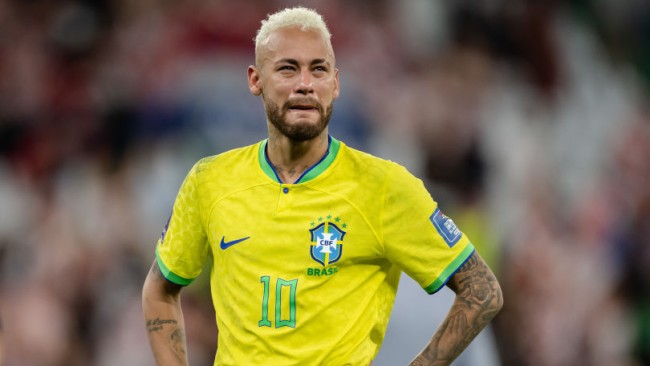
The now former Brazil head coach Tite has explained why Neymar did not take a penalty in their shootout defeat to Croatia at the 2022 World Cup quarter-finals.
- Erik ten Hag hits back at Ronaldo over Man Utd exit
- Portugal players ‘unhappy’ with who’s in Ronaldo’s entourage as new problem emerges
- John Terry reveals “incredible” rule Mourinho told Chelsea stars that refs didn’t know
At the Education City stadium on Friday, Bruno Petkovic’s 117th minute goal levelled the score after Neymar’s record breaking goal had won it for the tournament favourites.
As a result, it went to penalties, but Neymar, Brazil’s first-choice taker, did not step up as Croatia won the shootout 4-2 after Rodrygo & Marquinhos failed to score.
Many assumed that the 30-year-old attacker was planning on taking the fifth, and usually decisive penalty, something Tite confirmed post-match.
‘He is the fifth and decisive penalty taker,’ the 61-year-old said. ‘The player who has more quality and the mentality to step up then is under greatest pressure.’
The tactic is nothing new to football but often comes under huge scrutiny when a shootout does not go to sudden death, with Jurgen Klinsmann expressing his frustration on the matter to the BBC.
He said: ‘Nemyar would have been the first one for me. Just set the tone, score the first one and calm everyone else down. ‘Set the tone, don’t keep them for the fifth basically because you might not get the chance to kick.’
Neymar is a prolific and successful penalty taker having scored a total 74 out of 89 spot-kicks, not including shoot-outs.
Soon after full-time, Tite confirmed his exit from the Brazil team, having stated earlier in the year that he would be stepping down after Qatar 2022 regardless of the outcome.
‘A painful defeat, but I’m at peace with myself. It’s the end of my cycle,’ he added.
‘I already decided this over a year and a half ago. I’m not a two-faced guy. I wasn’t playing to win and then making drama to stay, anybody who knows me knows that.
‘It was a whole process. Before, it was a recovery process, but now it had a whole sequel.
‘Only time will tell [what my legacy will be]. I’m not in a position to evaluate all the work carried out. Over time, you will make this assessment, I don’t have that ability now after an elimination.
‘The pain, however human, I may have… the emotions are high.’

Leave a Reply